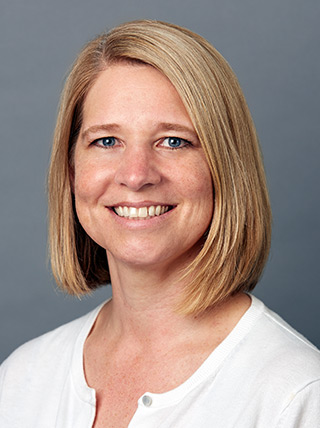New Grants Expand Study to Increase Equity in Genetic Testing
Stories - August 4, 2020

Study offers testing for inherited cancer syndromes to diverse populations
 Katrina Goddard, PhD
Katrina Goddard, PhD
Three new grants will fund studies at the Kaiser Permanente Center for Health Research (CHR), expanding a large genetic testing study called CHARM: Cancer Health Assessments Reaching Many. The studies are funded by the National Human Genome Research Institute, the National Cancer Institute, and the National Institute on Minority Health and Health Disparities.
“When we submitted three supplemental funding requests in May 2019, we were optimistic that at least one of them would get funded. We had no expectation that all three would be awarded,” noted Katrina Goddard, PhD, Co-Principal Investigator of CHARM and Director of CHR’s Translational and Applied Genomics Department. “The approval of all of these grants reflects the interest funders have in genetic testing for hereditary cancer syndromes and the work that the CHARM study is doing to reach patients from minority groups or those with lower levels of education or income.”
CHARM is a nearly $11 million, four-year study that seeks to understand what health systems can do to ensure equity of access to genetic testing and counseling among all patients. CHARM has enrolled more than 800 patients in Portland, Oregon and Denver, Colorado who are diverse in terms of their race, ethnicity, income, primary language, health literacy, and insurance status. The study specifically recruited Spanish speakers, developed culturally tailored and translated materials for them, and provided interpreters for genetic counseling visits.
What is the CHARM Study Doing?
CHARM is screening healthy adults ages 18-49 in primary care clinics to help identify those at risk for Hereditary Breast and Ovarian Cancer (HBOC) syndrome and Lynch syndrome—two hereditary cancer syndromes that lead to an increased risk of breast, ovarian, colon, and endometrial cancer. CHARM offers patients screening for these cancer syndromes, and if screening indicates patients are at risk or meet other criteria, they are offered additional genetic services, including exome sequencing, to further assess their risk. Exome sequencing examines the parts of our DNA that contain instructions for building proteins.
Assessing Patient Risk With a Self-Guided Tool
CHARM is testing several new approaches to screening for hereditary cancer syndromes. One is a web-based risk-assessment tool that asks patients about their personal and family history and can assess their risk without an in-person visit. Kathleen Mittendorf, PhD, a CHR Research Associate, is leading a two-year study to evaluate the effectiveness of the risk assessment tool, which was designed for patients of all literacy levels. Mittendorf will examine whether factors such as participant literacy and numeracy (the ability to understand numbers) predict how long it takes participants to complete the assessment and how accurate their responses are compared to what they tell a genetic counselor. Mittendorf will also interview study participants to learn why some people take a long time to complete the assessment, why some start it but don’t finish, and why some patients provide very different family history information in the assessment compared to what they tell a genetic counselor. These analyses will help determine whether the tool is easy to use for all participants.
“This supplemental award is a career development award for Kate,” said Goddard. “The primary goal is to enable professional development activities and assist early career researchers to grow in their skills. Through this supplemental study, Kate will have the unique opportunity to lead a project independently, and this project will help us learn if we are using the right tools to help identify patients at risk.” Improving identification of risk is important because these hereditary syndromes greatly increase a patient’s chance of developing cancer. Diagnosis means patients can be monitored and even receive preventive treatments, such as surgery.
Helping Patients Decide What Results to Receive
Although exome sequencing is an effective tool for genetic diagnosis, one barrier to its use has been the need to help doctors understand and adopt this technology. Exome sequencing is more complex than standard genetic testing and its results and methods are more complicated to convey to patients.
The second new study will identify ways to improve how patients and their doctors make choices about using exome sequencing. Elizabeth Liles, MD, MCR, a Kaiser Permanente Northwest primary care doctor who is board certified in Internal Medicine, and a CHR Investigator on the CHARM team, will lead this study.
Liles will test a web-based tool that helps patients identify their values to see if it helps them decide what results they want to receive from exome sequencing. While the main goal of the CHARM study is to identify increased cancer risk, screening might also identify risk for other conditions, such as heart disease, which patients may or may not want to know about. “We want to know if helping patients identify their own values makes them more selective about the types of results they choose to receive,” said Liles.
Exploring Barriers Among LGBTQ+ Patients
Current methods used to identify patients who should be referred for genetic counseling and testing rely on their knowledge of their family history of cancer, including cancer type and the age of onset in close relatives. When patients don’t know their family cancer history, it becomes difficult to assess their hereditary cancer risk. This could lead to missed opportunities for life-saving interventions, such as risk-reducing surgery, as well as missed opportunities to share any hereditary risks with the patient’s family members.
Unfortunately, due to stigma and intolerance that may lead to strained or estranged family relationships, people who identify as lesbian, gay, bisexual, transgender, queer, non-binary, or another identity (LGBTQ+)—may have limited knowledge of and access to family cancer and other health history information.
The third new study is led by Jessica Ezzell Hunter, PhD, a CHR Investigator on the CHARM team who is a genetic epidemiologist with training in molecular genetics and neuropsychological outcomes. Dr. Hunter will interview LGBTQ+ individuals to explore their knowledge and experiences, as well as barriers to knowing family cancer information that could lead to health disparities for this group.
The new approaches the CHARM study is testing could enable health care providers and systems to offer genetic screening, testing, and counseling to more patients. The CHARM study hopes to provide a model to increase equitable access to genomic services for all patients.
CHARM involves several health systems and universities, including Denver Health, Kaiser Permanente Colorado, Kaiser Permanente Northwest, Seattle Children’s Research Institute, Columbia University, the University of California at San Francisco, Dana Farber Cancer Research Institute, Emory University, and the University of Washington.